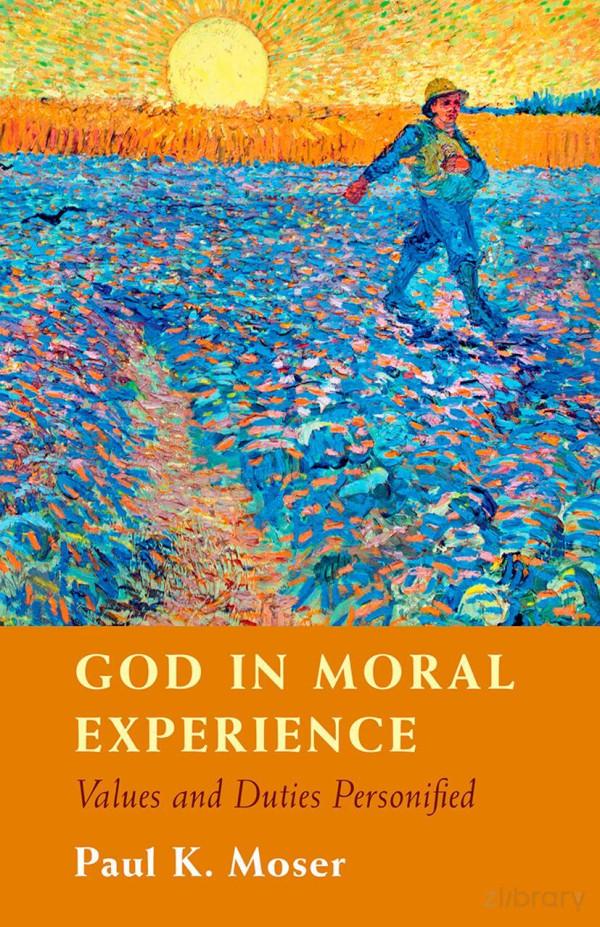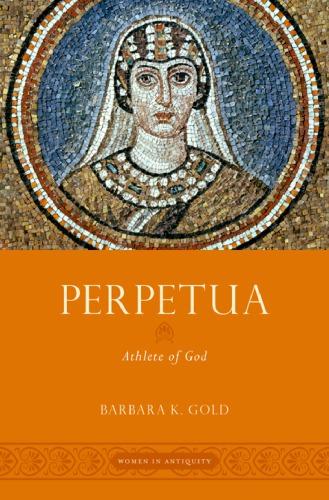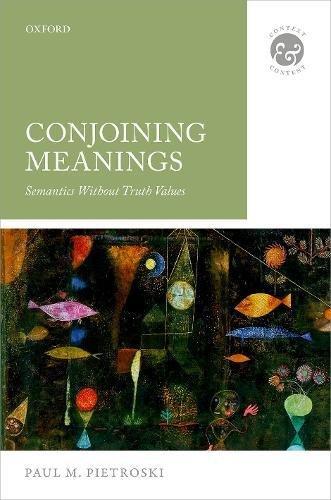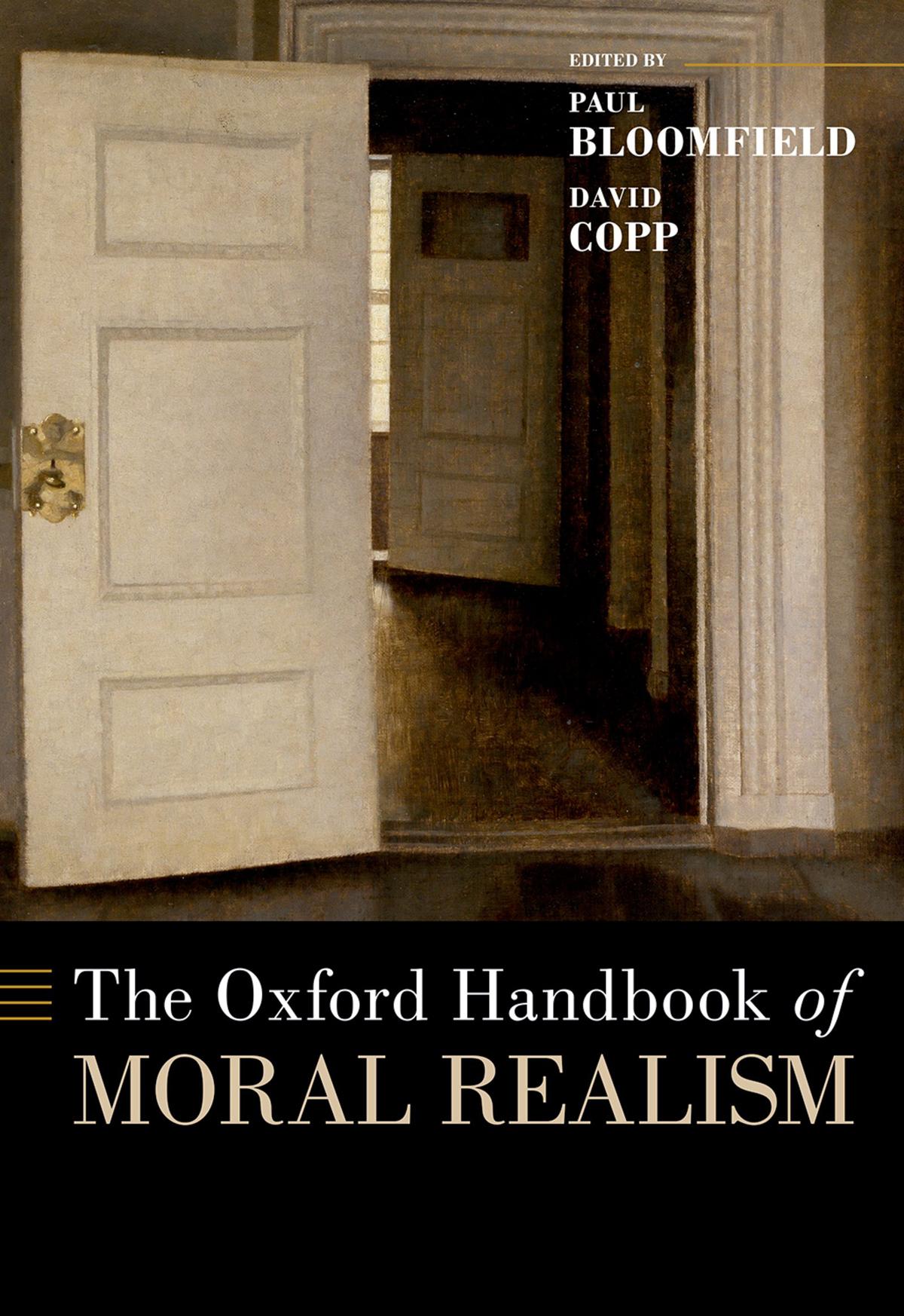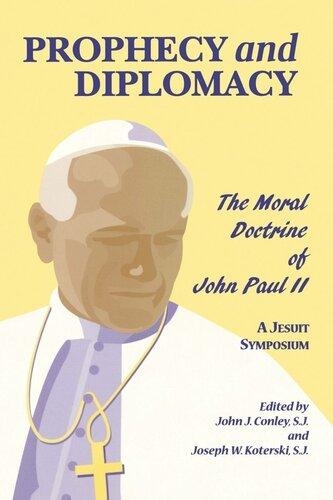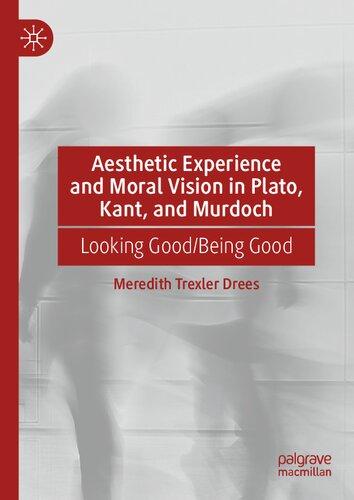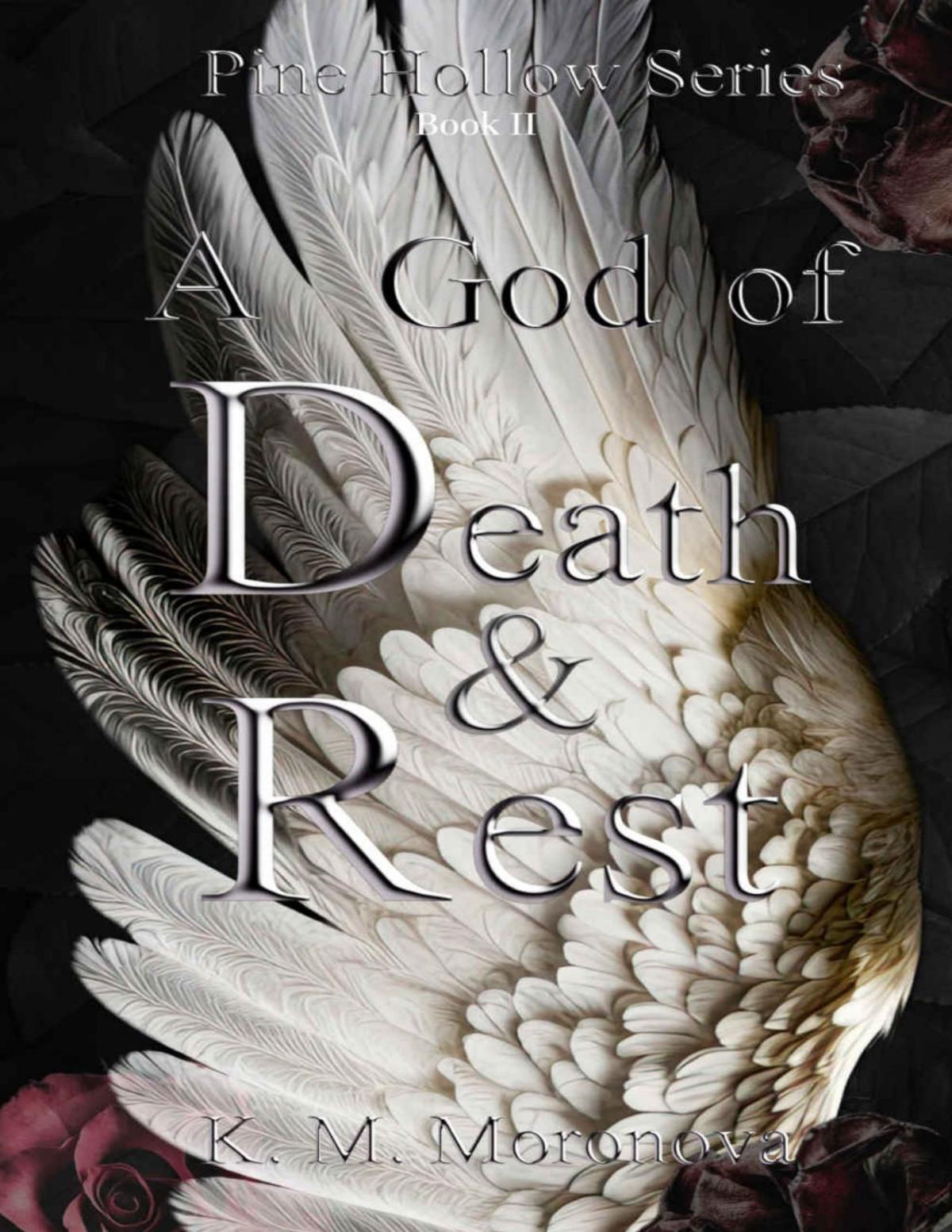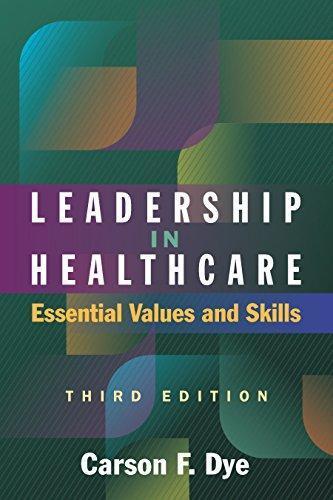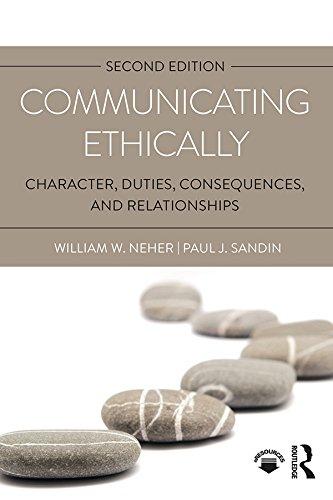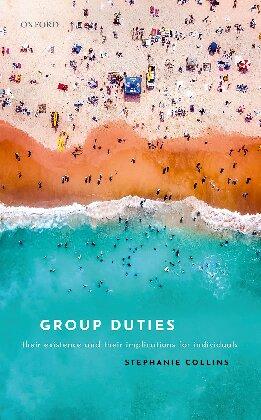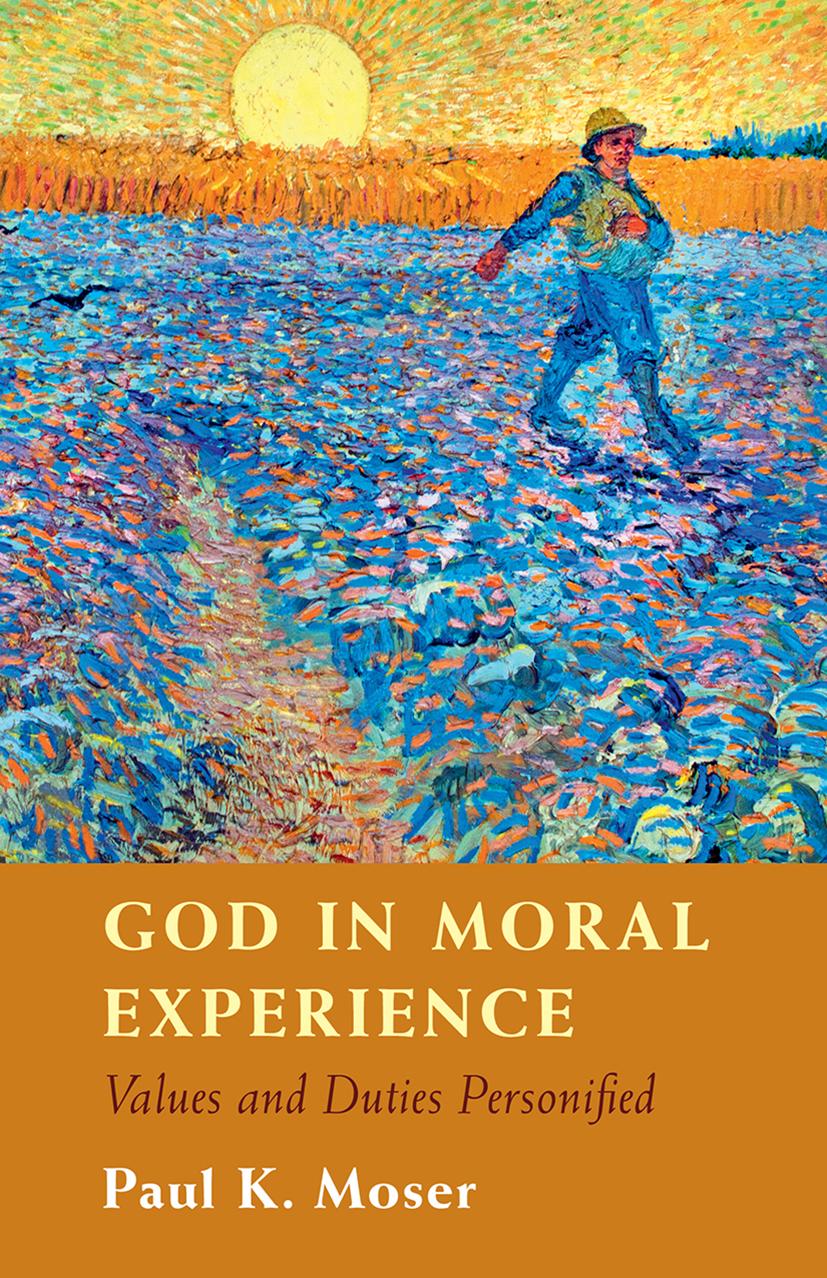GodinMoralExperience
TheApostlePauldefinedthemoralvaluesoflove,joy,peace,patience,and kindnessas “thefruitofGod’sSpirit.” PaulMoserherearguesthatsuch valuesarecharactertraitsofanintentionalGod.Whendirectlyexperienced,theycanserveasevidencefortherealityandgoodnessofsucha God.Mosershowshowmoralconscienceplaysakeyroleinpresenting intentionaldivineactioninhumanmoralexperience.Heexploresthis insightinchaptersfocusingonvariousfacetsofmoralexperience –regardinghumanpersons,God,andtheologicalinquiry,amongother topics.Heenablesaresponsibleassessmentofdivinerealityandgoodness, withoutrelianceoncontroversialargumentsofnaturaltheology.Clarifying howattentiontomoralexperiencecancontributetoalimitedtheodicyfor Godandevil,Moser’sstudyalsoacknowledgesthattherealityofsevere evildoesnotsettletheissueofGod’sexistenceandgoodness.
isProfessorofPhilosophyatLoyolaUniversityChicago. Heistheauthorofnumerousbooks,mostrecently Paul’sGospelofDivine Self-Sacrifice:RighteousReconciliationinReciprocity, DivineGuidance: MoralAttractioninAction,and TheDivineGoodnessofJesus:Impact andResponse (allCambridgeUniversityPress).
ValuesandDutiesPersonified
ShaftesburyRoad,Cambridge ,UnitedKingdom
OneLibertyPlaza, thFloor,NewYork, ,USA
WilliamstownRoad,PortMelbourne, ,Australia
–, rdFloor,Plot ,SplendorForum,JasolaDistrictCentre, NewDelhi – ,India
PenangRoad,#–/,VisioncrestCommercial,Singapore
CambridgeUniversityPressispartofCambridgeUniversityPress&Assessment, adepartmentoftheUniversityofCambridge.
WesharetheUniversity’smissiontocontributetosocietythroughthepursuitof education,learningandresearchatthehighestinternationallevelsofexcellence.
www.cambridge.org
Informationonthistitle: www.cambridge.org/
: ./
©PaulK.Moser
Thispublicationisincopyright.Subjecttostatutoryexceptionandtotheprovisions ofrelevantcollectivelicensingagreements,noreproductionofanypartmaytake placewithoutthewrittenpermissionofCambridgeUniversityPress&Assessment.
Firstpublished
AcataloguerecordforthispublicationisavailablefromtheBritishLibrary LibraryofCongressCataloging-in-PublicationData
:Moser,PaulK., -author.
:Godinmoralexperience:valuesanddutiespersonified/PaulMoser,Loyola UniversityChicago.
:Cambridge,UnitedKingdom:NewYork,NY,USA:Cambridge UniversityPress, .|Includesbibliographicalreferencesandindex.
: (print)| (ebook)| (hardback)| (paperback)| (epub)
: :Christianethics.|PresenceofGod.|EthicsintheBible.|Moral realism.|ProvidenceandgovernmentofGod–Christianity.
: (print)| (ebook)| –dc/eng/
LCrecordavailableat https://lccn.loc.gov/
LCebookrecordavailableat https://lccn.loc.gov/ ---- Hardback
CambridgeUniversityPress&Assessmenthasnoresponsibilityforthepersistence oraccuracyofURLsforexternalorthird-partyinternetwebsitesreferredtointhis publicationanddoesnotguaranteethatanycontentonsuchwebsitesis,orwill remain,accurateorappropriate.
Prefacepage ix
Introduction:MoralExperiencePersoni
MoralImpactandResponse
GodinMoralValues
ChapterOverviews
MoralExperienceandPersons
DeciderswithDissonance
ValuesasPowers
CharacterandWill
ConscienceandValuing
MeaninginValues
MoralExperienceandGod
ValuesandGod
GodandGoodExperienced
ReciprocityinResponse
AssuranceGrounded
TwoContrasts
MoralExperienceandMoralRapport
GodinHumanImages
GodinGod’sImage
MotivatingDivine–HumanRapport
ObstaclestoMoralRapport
ed
MoralExperienceandMoralInspiration
SpiritinCreation
SpiritinRe-creation
InspirationinJesusandPaul
GambitforDivineInspiration
RealityCheckinMoralInspiration
MoralExperiencewithoutPhilosophicalOverlays
DivinePowerandEvidence
PlatonicPhilosophicalOverlay
ThomistPhilosophicalOverlay
KantianPhilosophicalOverlay
DivineEvidencePersonalized
MoralExperienceandCo-valuinginConflict
GenesisRevisited
ConflictinMoralLifeandWisdom
TrustinDivineAccompaniment
ConflictinConscience
Accompanimentfor Agapē
Love’sJudgment
TriumphoverMoralDefeatandDeath
MoralExperienceJustifiedbyGod
IntheBeginning
FromCreationtoPromise
God’sTestandJob’sLesson
PaulandJesusonTheodicy
God’sTheodicyJustified
PerfectingMoralExperience
MoralExperienceandTheologicalInquiry
CompetitorsforDivineRevelation
JesusonTheologicalInquiry
PaulonTheologicalInquiry
MoralExperienceasGiftandDuty
ConcludingOngoingTask
SelectBibliography
Index
Preface
Shakespeareintroducedtalkof “forgoodness’ sake” withatelling sentimentin HenryVIII: “Forgoodness’ sake,considerwhatyou do,howyoumayhurtyourself,ay,utterly.” Whatwe “do” often bearsonthegoodnessthatcomesordoesnotcometous.Our “doing” inthisregardincludesthequestionswepursue,astheycan informandrevealthefocusofourlivesinrelationtowhatisgood.
Thisbookpursuesademandingquestionthatcanbeforgoodness ’ sake:Canwehumanshaveliveswithlastingmeaningand value,and,ifso,doesGodhaveanyrolehere?Thisquestionis demandingbecause,goingbeyondshort-termmeaning,itasks aboutseeminglyelusivemeaningforhumanlifethatlasts – atall orderformostinquirers.IfGoddoeshavearolehere, which God, and how?Goodanswersdonotcomeeasy,buttheystillmaycome ifweapproachourquestionsresponsibly.Thisbookcontendsthat theydocome,ifwithimportantmoralchallengesforhumans.
Ourcultureatlargemayormaynotvaluethequestionstobe pursuedhere,but,uponreflection,manymembersofourculture dovaluethem.Weshallseewhyourquestionsmeritourcareful reflection,evenifsomeinquirerslackoptimismaboutlasting meaningforourlives.Weshallassesstheimportanceofour questionsinrelationtoGod’srole,ifany,inlastingmeaningand valueforhumanlife.IfGodexists,Godmayseektohaveallofus “educated” inadivineschooloflastingmoralmakeoverforus,for ourowngood,andthus “forgoodness’ sake.” Whetherweexcelin thismoraleducationremainstobeseen,butweshallaskaboutits importanceanditsprospectsforusasmorallyresponsiblepersons.
Ourinquirybearsonwhatweareentitledtohopeforregarding humanlife,particularlyamorallygoodhumanlife.Thismatter differsfromwhatwehappentohopeforbecauseitcallsfor grounded hope – thatis,hopewithadequatereasonorsupport.Thisishope thatgoesbeyondwishfulthinkingtoresponsiblehope,basedonour relevantevidence.Wewillclarifywhattherelevantevidencelooks like,therebysavingusfromlookinginthewrongplacesforlasting meaningandvalue.Forgoodness’ sake,wecannotaffordtolookfor thelivingamongthedead,orforGodinwhathasnodivinegoodness.Itisanoccupationalhazardamongphilosophicalinquirersto lookforGodinthewrongplaces.Weshallresistthathazard.
SomeinquirersagreewithAlbertCamusthatwehumansshare theabsurd,hopelesspredicamentofSisyphusinHomer’smyth. ThemythhasSisyphusdoomedtorollingarockupahill,onlyto havetherockrolldown,leadingtoarepetitionoffutilerockrolling,withnoendorgaininsight.Hislifethushasnorobust meaningorvalue,letalonelastingmeaningorvalue.Evenso, CamuspraisesSisyphusasan “absurdhero” forhispersistencein avoidingcollapsefrombitterdespair.Heremarksthat “onemust imagineSisyphushappy.” Manypeopleconcur,holdingthat we are Sisyphus,likeitornot.We,however,shallentertaindoubtsabout thatspinonatragicmyth.Evenifwefacetragedyinlife,andthat seemsunavoidableforus,westillmustaskifourlivesmatchthe hopelessabsurdityfacedbySisyphus.
Perhapsthereisacaringpurpose-bearerandpurpose-giver behindtheveilofhumantragedy.Thiswouldbeabenevolent intentionalagentwho,howeverelusive,iscapableofguidingthe worldforgoodness’ sake,includingforlastinggoodincooperative humanlives.Thatoptionseemsimaginable,butisitjustimaginary? Weshouldaskwhetheranythingindicatesittobearealitybeyonda fantasy.Thekey,weshallsee,isinourexperienceofsomemoral valuesandduties,includinglove,joy,peace,andpatience,that arguablyseek,asdivinecharactertraits,toguideusindistinctive moralwaysforthesakeofcharacterformation.
Weshallexaminetheintendedmoralimpactofthetraitsin questionandourchosenresponse,consideringthatourattitude towardthemmayamounttoourattitudetowardGod,evenifwedo notacknowledgeGod.Therelevantevidencecouldberightbefore oureyes – oratleasttheeyesofourconscience – whilewestill overlookit.Thisbookaimstochallengesuchoverlookingby bringinganeglectedkindofself-awarenessandself-adaptation involvingmoralconsciencetobearonmoralvaluesanddutiesthat intentionallychallengeusforgoodness’ sake.
Neglectofthemoralvaluesanddutiestobeidentified,weshall see,entailsneglectnotonlyofGodbutalsoofcrucialevidenceof God’srealityandgoodnessindivinecharactertraitsdisclosedin moralexperience.God,wemightsay,hidesandseeks,andeven self-reveals,inthesevaluesanddutiesastheyareintendedtohavea moralimpactonusandtorepresentqualitiesofdivinepersonality. Moretothepoint,Godself-revealsdivinevaluingandcaring towarduswiththesevaluesanddutieswhenexperienced,aiming topersuadeusandtoinfluenceourwillswithoutcoercionto complywiththem.
Thedivineaimistohaveuscomplyvoluntarily,inorderforusto becomeworthybeneficiariesandrepresentativesofGod’smoral character,thusbuildingacommunityofGod’speople.Inthis perspective,wearenotinthehopelesspredicamentofSisyphus; norneedweconsiderhimtobehappy.Weare,however,ina contextofongoingmoralchallengeseekingourmoralrapportwith Godforthesakeofourcharacterformation,evenifwetryto suppressthisfact.Inthatrapport,God’smoralcharacterisrevealed tohumansindirectwaysthatintentionallychallengeandencourageustowardgoodlivesinoursharingofdivinecharactertraits.
Thisbook’sexaminationofvalue,duty,andmeaninginhuman livestakesthefollowingbroadsteps.TheIntroductiondrawsfrom LeoTolstoytogiveaconcreteexampleofmoralchallengeandselfadaptationin findingmeaningforhumanlife.Itsuggeststhatwe oftenshareTolstoy’skindofchallengeinourmoralexperienceto
becomemorallybetterpersons. Chapter contendsthatpersonsas voluntarydeciderstypicallyhavepurposes(orintentions)fortheir decisionsandbroaderactions,evenifthosepurposesaresubconsciousandfacedissonanceinpersonalandsociallife.Itidentifies howsomemoralvaluesrevealedinmoralconsciencecanoffer worthymeaningforourlives,owingtotheirroleinourbecoming morallybetteraspersonsandinourpersonalrelationships.
Chapter askswhethersomemoralvaluesanddutiesthatinfluence personsrevealtothem,perhapsonlywithglimmersinconscience, personalcharactertraitsofabenevolentpurpose-bearingGod seekingtoleadthemtomoralimprovementandcharacterformation.Evenso,somepeoplecouldfailtorecognizesuchpotentially veileddivineactivity,owingtovariousreasons.
Chapter considersthatmoralexperiencefromacaringGod wouldseekmoralrapportwithhumansforthesakeofaninteractivecooperativerelationshipinrighteousness.Suchrapport wouldcallfortheirloyalcooperationwithGod’smoralwillas expressedintheirmoralexperience,includingconscience. Chapter examinesakindofmoralinspirationofhumansby Godforthesakeofreachingtheirdeepestmotivesfordecision andaction.Suchinspirationtakesmoraldecision-makingbeyonda self-helpprogramtoaninterpersonalcontributionfromGodtobe receivedwithloyalcooperationbyhumans. Chapter contends thatmoralexperienceandcorrespondingevidencefromGoddo notdependonphilosophicaloverlaysofanabstractorspeculative sort.ItusesfamiliarPlatonic,Thomist,andKantianphilosophical overlaystoillustratethislessonandtohighlighttheimportanceof directmoralexperienceofGod’srighteouscharacterandwill.
Chapter exploreswhetherbecomingaco-valuerfordivine goodnessinconflictcouldbringlastingmeaningnotonlytoan individuallifebutalsotothesharedlifeofasociety,includinga societythat flourisheswithnational,ethnic,racial,gender,and religiousdiversity.Suchasocietycouldbenefitwithgoodnessand meaningbyitschosenreciprocityinreflecting(tosomedegree)
amorallyperfectGodworthyofhumanworshipandtrust.
Chapter askswhetheraperfectlygoodGodcouldjustifyor vindicateGod’swaysofallowingandusingseveresufferingand evilinhumanmoralexperienceandintheworld.Itlooksforsucha justificationindivinepromiseandproximitythatseekrighteousnessasrectitudefulfilledforhumansinGod’spreferredtime. Chapter explorestherelevanceofmoralexperiencetotheological inquiry.ItconsidersapotentialdivineconcernforrighteousintentionsininquirersaboutGod.
Overall,thebookexplainstheneededroleofGodinhuman moralexperienceandcharacterforthesakeofbuildingarighteous, morallygoodcommonwealthinmoralrapportwithGod.Itargues thatthisroleenjoysdistinctivebutwidelyneglectedsupportfrom evidenceofintentionalactivityinhumanmoralexperienceand character.Weshallseethatthisevidencemeritsourcarefulattentionifweaimtounderstandavitaldivinepurposebehindmoral valuesanddutiesandthatpurpose’scorrespondingethicsforthe commongood.Apotentialresultisanewappreciationofthe profoundsignificanceofmoralvaluesanddutiesforthemeaning ofhumanlife,individuallyandcollectively,andinrelationtoGod andintentionaldivineactivityinhumanexperienceandmoral character.
Thisbookhasbenefitedfromcommentsandsuggestionsfrom manypeople.Forconstructiveremarksonearlierparts,Ithank SimonBabbs,DavidBukenhofer,TomCarson,HarryGensler, ToddLong,ChadMeister,AevaMunro,BenNasmith,Clinton Neptune,BernardWalker,andTomWren.Ialsothankstudents inmyclassesatLoyolaUniversityChicago,andvariousanonymous referees.ForexcellenthelpatCambridgeUniversityPress,asusual, IthankBeatriceRehl,publisher.
Partsofthebookmakeuseofrevisedmaterialsfromsomeof myrecentessays: “DivineSelf-DisclosureinFilialValues:The ProblemofGuidedGoodness,” ModernTheology (); “Faith,Power,andPhilosophy:Divine–HumanInteraction
Reclaimed,” InternationalJournalofPhilosophyandTheology (); “DivineMoralInspiration:UnityinBiblicalTheology,” BiblicalTheologyBulletin (); “MoralRapportin CommunionoftheSpirit,” Pneuma (); “BiblicalTheodicy ofRighteousFulfillment:DivinePromiseandProximity,” Irish TheologicalQuarterly ();and “GodwithUsinMoral Conflict,” TheExpositoryTimes ().
Introduction
MoralExperiencePersonified
Wesometimesneglectquestionsaboutwhatisgoodforus,suchas thequestionofwhetherourconscienceattimesshowsmoral goodnessinintentionalattitudesoractionstowardusaspersons. Wethuscanfailtonoticesomeintentionalgoodnessinourlives andhowitfunctionstowardus.Weshallexaminehowourneglectingsomemoralquestionsrestrictsourunderstandingand appreciationofintentionalgoodnessinourlives.Weshallsee, however,thatasuitablyresponsiveattitudetomoralvaluesand dutiescanshednewlightonvitalquestionsaboutthenatureof moralgoodnessandlife’smeaning.Suchanattitude,involvingselfadaptiveattentiontoexperiencedgoodness,canalso figureina person ’scommitmenttoaroleforagoodGodinhumanmoral experienceandlife.Wemaythinkofmoralexperiencegenerallyas awarenessof,orattention-attractionby,factorsbearingdirectlyon righteousnessorunrighteousness.
MoralImpactandResponse
In TheDeathofIvanIlyich (),LeoTolstoyimaginesatroubled butinquisitiveRussianjudge,IvanIlyich,whoreflectsTolstoy’slife invariousways.Downtroddenwithphysicalinjury,Ivanconfronts the “innervoice” ofhisconscienceinmoraldissonanceandstruggle and,accordingtomyreading,inmoralresponsivenessinselfadaptationtoexperiencedmoralgoodness.
InitialAwarenessandChallenge
Ivan’sstruggleandexperimentbeginwithhisawarenessofinadequatemoralgoodnessinhislife(hismain “suffering”)anda correspondingchallengeinaquestionfromhisconscience.
“Whatisityouwant?” wasthe firstclearconceptioncapableof expressioninwords,thatheheard. “Whatdoyouwant?Whatdo youwant?” herepeatedtohimself. “WhatdoIwant?Toliveand nottosuffer, ” heanswered.Andagainhelistenedwithsuch concentratedattentionthatevenhispaindidnotdistracthim.
“Tolive?How?” askedhisinnervoice. “Why,toliveasIused to – wellandpleasantly.”“Asyoulivedbefore,wellandpleasantly?” thevoicerepeated.
Thisself-reflectionleadstoIvan’sasking,forthesakeofagood explanation,abouttheactualmoralcharacterofhislife.Hehad assumedonthebasisofhismoralself-experiencethathisownrole wasmorallygoodonbalance.Hisself-reflectionadds,however,to themoralchallengehefacesbyrevealingmoraldissonanceand evenconflictfromwithin.Hisindicatorsinexperienceofhis moralgoodnessnowfacediscordfromhisexperienceofhismoral failure.Suchmorallyrelevantdissonanceleaveshimtroubledand perplexed.
InitialResponseAdapted
TolstoyportraysIvanasrevisinghisinitialunderstandingofhis priormoralexperienceandlife.
AssoonastheperiodbeganwhichhadproducedthepresentIvan Ilych,allthathadthenseemedjoysnowmeltedbeforehissightand
LeoTolstoy, TheDeathofIvanIlyich,in GreatShortWorksofLeoTolstoy,trans. LouiseMaudeandAylmerMaude(NewYork:Harper&Row, ),p. (hereafterDII).
turnedintosomethingtrivialandoftennasty.Andthefurtherhe departedfromchildhoodandthenearerhecametothepresentthe moreworthlessanddoubtfulwerethejoys ... Thenallbecame confusedandtherewasstilllessofwhatwasgood;lateronagain therewasstilllessthatwasgood,andthefurtherhewenttheless therewas.
Ivanisadaptinghimselfandhisself-understandingtotheactual moralexperienceofhislife,includingitsdissonance,thusleaving behindsomeearlierself-deceptionabouthismoralcharacter.Such self-adaptingtomoralreality,althoughpainfulattimes,providesan opportunityformoralcandorandforfurthermoralchallengeon thatbasis.Ivanislearningabouthimselfthroughtrialanderrorin hisresponsiveself-reflectiononhismoralexperienceandcharacter, includingtheirdissonance.Hisprocessofself-adaptationtomoral goodnessrestsonthemoralvaluesheexperiencesandacceptsas motivatingqualities,albeitwithsomechangeinthosevalues overtime.
FearofMoralInadequacyandDespair
Ivanexpressesconcernabouthismoralinadequacyinhislife,and hefearswhatmaybethepainfultruthabouthimself.
“MaybeIdidnotliveasIoughttohavedone,” itsuddenlyoccurred tohim. “Buthowcouldthatbe,whenIdideverythingproperly?” he replied,andimmediatelydismissedfromhismindthis,thesole solutionofalltheriddlesoflifeanddeath,assomethingquite impossible. “Thereisnoexplanation!Agony,death Whatfor?”
ThepainfultruthofIvan’smoralinadequacypromptshisfearof despair(aswellasofalackofsatisfactoryexplanation)regarding
hismoralcharacterandlife.Hispotentialmoralfailureinlifeseems toomuchforhimtoacknowledgeandhandle.
TolstoyputsperceivedmoralfailureatthecenterofIvan’smoral struggle.Heremarks:
Itoccurredto[Ivan]thatwhathadappearedperfectlyimpossible before,namelythathehadnotspenthislifeasheshouldhavedone, mightafterallbetrue.Itoccurredtohimthathisscarcelyperceptibleattemptstostruggleagainstwhatwasconsideredgoodbythe mosthighlyplacedpeople,thosescarcelynoticeableimpulseswhich hehadimmediatelysuppressed,mighthavebeentherealthing,and alltherestfalse.Andhisprofessionaldutiesandthewholearrangementofhislifeandofhisfamily,andallhissocialandofficial interests,mightallhavebeenfalse.
TolstoyidentifiesinIvan’sexperience,perhapsinhisconscience, morallyrelevant “impulses” feltbutsuppressedbyhim,thusindicatingmorallyrelevantdissonanceinhislife.Healsogivesacentral roletoIvan’sself-adaptingtothenewevidencefromhismoral experienceandcharacter,whichindicatesthat “hehadnotspenthis lifeasheshouldhavedone.”
Ivan’sself-adaptivechangefreeshimfromaharmfulattemptto protectortojustifyhispreviousmoralself-imagethatsuppressed theactualmoraltruthabouthischaracterandlife.Italsoenables himtoproceed,throughself-adaptiveattention,withmoralinquiry akintoexperimenttodiscoverandtoclarifywhat,ifanything,lies behindtheveilofhismoralvaluesdirectedtowardagoodlife.Such valuesleavehimtroubledabouttheoverallmoralvalueandmeaningofhislife.
Ivan’ssearchformoralself-justificationincludeshislashingout atGod: “Heweptonaccountofhishelplessness,histerrible loneliness,thecrueltyofman,thecrueltyofGod,andtheabsence
ofGod. ‘WhyhaveYoudoneallthis?WhyhaveYoubroughtme here?Why,whydoYoutormentmesoterribly?’” Ivan findsno reliefinhisattemptatmoralself-justificationforhislife,evenifthe attemptseeksreliefinhisblamingthe “crueltyofGod.” Heisthus stuckinmoralsufferingoverhislife.
BeyondMoralSelf-Justification
Tolstoyremarksthat “Ivanwashinderedfromgetting[relieffrom hismoralsuffering]byhisconvictionthathislifehadbeenagood one. ” Healsocomments: “Thatvery[self-]justificationofhislife heldhimfastandpreventedhismovingforward,anditcausedhim mosttormentofall.” Thelattermoraltorment,accordingto Tolstoy,exceedsIvan’sconsiderablephysicalsuffering,andit invitesdespairoverhislife.Hesimplyisnotinapositiontojustify hisownlife,givenhismoralshortcomings.
Uponrelinquishinghisdubiousattemptatmoralselfjustification,Ivanhasapowerfulexperience:He “caughtsightof thelight,anditwasrevealedtohimthatthoughhislifehadnot beenwhatitshouldhavebeen,thiscouldstillberectified.Heasked himself, ‘Whatistherightthing?’ andgrewstill,listening.” The “light” experiencedbyIvanismorethanheatandsmoke,as itcomeswithachallengingmoralpurpose.It “revealed” something tohimabouthowhislifecouldbe “rectified,” ormaderight,from amoralpointofview.Thisrevelationchangeseverythingfor Ivan.Itopensthedoortonewhopeforhimregardinghis overalllife.
TolstoyhasIvan’smoralself-adaptationtogoodnesscontinue, withhislisteningforfurtherevidenceinmoralexperiencethat
requiresfurtheradaptiveattention,withouthislifebeingself-rectified orself-justified.Weneedtoask,then,exactlyhowitistoberectified orjustified.ThemoralexperimentisthusongoingthroughoutIvan’ s laterlife,untilitsend,owingtotheongoingemergenceofnew evidenceanddiscoveryinhismoralexperience,includingconscience. Weneedtoconsider,then,suchvitalevidenceanditsbearingonthe meaningofhumanlife.
TolstoybuildsintoIvan’slifeanimportantpersonalsourceof moralexperienceandevidence:apeasanthealthcareassistant, Gerasim,whoimpressesIvanwithhisattractivemoralcharacter understressfulwork.IvanremarkstoGerasim: “Howeasilyand wellyoudoitall!” Tolstoyadds: “Gerasimdiditalleasily,willingly, simply,andwithagoodnaturethattouchedIvanIlych.Health, strength,andvitalityinotherpeoplewereoffensivetohim,but Gerasim’sstrengthandvitalitydidnotmortifybutsoothedhim.” His “goodnature,strength,andvitality” weremorallygroundedin goodness,inawaythatwasattractivetoIvan,eveniftheycreated somedissonanceforhim.Theythus figuredinIvan’snotlosing hopeforhislifeandinhisultimatelycatching “sightofthelight.” Weneedtoconsider,then,theroleofmoralgoodnessinother peopleforaperson’sappreciationoftheoverallvalueandmeaning ofhumanlife.
TolstoyhasIvanundergoamoralexperienceofGodakinto Tolstoy’sownlife-changingexperience,notedinhis Confession of :
“LiveseekingGod,andthenyouwillnotlivewithoutGod.” And morethaneverbefore,allwithinmeandaroundmelitup,andthe lightdidnotagainabandonme.AndIwassavedfromsuicide. Whenandhowthischangeoccurred,Icouldnotsay. Asimperceptiblyandgraduallytheforceoflifeinmehadbeen destroyedandIhadreachedtheimpossibilityofliving,acessation
oflifeandthenecessityofsuicide,soimperceptiblyandgradually didthatforceoflifereturntome.
So,Tolstoy’sownmoralself-adaptationtomoralgoodnesswas ongoingandgradual,anditwentagainsthisinitialefforttoward hismoralself-justification.Evenso,ithadadefinitegoal:toexplain hisactualmoralexperience,includingitschallenges,conflicts,and frustrations,withcandorandillumination,forthesakeofrecognizing,appreciating,andself-conformingtotheneededmoralgoodnessinhislife.
Tolstoylinkstheneededmoralgoodnessinthemeaningoflife withtheintentionalwillofGod,asdoesIvan(ifwithmoresubtlety inthelattercase):
Ireturnedtotheconvictionthatthesinglemostimportantpurpose inmylifewastobebetter,toliveaccordingtothiswill[ofGodfor goodness].IreturnedtotheconvictionthatIcould findtheexpressionofthiswillinsomethinglonghiddenfromme,somethingthat allofhumanityhadworkedoutforitsownguidance;inshort, IreturnedtoabeliefinGod,inmoralperfection.
Tolstoythuswasmovedtowardco-valuingwithGodandeven agreeablycooperatingwithGod’swillorpurpose,asexperienced byhim,forhimto “bebetter.” Suchcooperatingcanexceedcovaluinginthatitaddsinwardcommitmenttooutwardaction. Itcanincludeself-conformityinmotive,action,andcharacterto God’sperfectlygoodwillorpurpose.
Weshallexplorehowthekindofmoralvaluesrecognizedby TolstoyandIvancanmotivatepeoplesettlingontheirattitudes, actions,andcharacter.Acriticalissuewillbewhethersuchmotivatingbymoralvaluesissometimesdirected,perhapsintentionally
LeoTolstoy, AConfessionandWhatIBelieve,trans.AylmerMaude(London:Oxford UniversityPress, ),pp. –. Tolstoy, AConfession,p. .
byGod,towardagoalratherthanbeing “blind.” Ifitis,thiscallsfor somecarefulexplanation,perhapsintermsofanintentional, directingdivinesourcebeyondhumans.Tolstoy,asnoted,thought oftherelevantgoalintermsofthedivinepurposeto “bebetter.”
WeneedtoaskwhatexactlypromptedTolstoy’scontroversial movetoinvokeGodinrelationtohismoralexperience,particularly inconnectionwithhisideaof “moralperfection.” Wealsoneedto askwhetherthatboldmovewasorcanbewellgrounded,and,ifit can,howso.Thisbookexploressuchmatterswithoutbeinglimited toTolstoy’sorIvan’sinstructivemoralexperiences.Italsoallows forvariablegroundedresponsestomoralexperienceamong humans.Indoingso,itassessesthesignificanceofthisvariability fortheallegedrealityofmoralvaluesandGod.Weshallseehow moralexperienceandself-adaptationtogoodnesscontributetoour discoveryandunderstandingofmoralvaluesandperhapsevenof intentionaldivineactivityinourmoralexperience.Theroleof variablemoralunderstandingamonginquirerswillcontributeto ourappreciationofmotivatingandvoluntaryfactorsinmeaning foraperson’slife.
GodinMoralValues
Thebookexaminesacontroversialtwofoldquestion:Canwe humanshaveliveswithlastingmeaningandvalue,and,ifso,does Godhaveanyrolehere?Theanswerisgroundedinmoralexperienceofintentionallybeingledtowardmoralgoodnessthrough valuesanddutiesinconscience.Akeyfeatureofbeingledinthis wayisself-conformitytomoralgoodness,andthelatterrequires beingdulyinquisitive,responsive,intentional,andloyaltoward suchgoodnessinmoralexperience.Thedetailsrequiredforsuch self-conformitywilladdclarityinduecourse,relativetomoral motives,actions,andcharacter.WeshallseethatGodwouldaim formoralrapportorcommunionwithhumans,includinga
relationshipofvolitionalharmonyinvitalmoralmatters,forthe sakeofbuildinghumanmoralcharacterandrelationships.
WedonotbegthequestionofwhetherGodexists.Nothing wouldbegainedbysuchcheatinginourcontroversy.Instead,in allcases,evidencehasfreereintoindicatethenatureofaperson’ s moralorreligiousexperienceandthecorrespondingevidenceit supplies.Giventhevariabilityinrelevantevidence,wethusshow mutualtoleranceincharacterizingourmoralandreligiousexperiencesortheirabsence.Thisapproachshouldsaveusfromcounterproductivedogmatism.Italsoseemsto fitwiththecharacterofa goodGodwhowouldbemorallyabovecoercing,manipulating,or intimidatinginquirers.Thisstrategyseemsfairandfruitfulforall concerned,anditseemstoaccommodategenuineresponsibility forhumans.
Theveryword “God” invitescontroversyandcaution,givenits breathtakingdiversityofuses.Thisbookadoptsasimplifying assumption:Theword “God” isanexaltedtitlerequiringofany titleholderworthinessofworshipandtrust,andthusperfectmoral goodness. ItdoesnotfollowthatGodexistsoreventhatusingthe title “God” commitsustotheexistenceofGod.Thetitle “kingof theUSA,” forinstance,isintelligibleeventhoughthereisnosuch king.(Theremighthavebeensuchaking,ofcourse.)Likewise,the title “God” canbeintelligibleintheabsenceofGod’sexistence.The meaningfulnessofthetitle,then,doesnotsettletheissueofan actualtitleholder.So,theterm “God,” asweshalluseit,isnota propernamethatlogicallyrequiresabearerorreferent.Thetitle “God” mightfailtorefertoanyrealobject.Agnosticsandatheists, then,candiscussmattersofGodwithoutassumingthatGodexists orthatthetitle “God” ismeaningless.Anondogmaticapproachto Godshouldaccommodatethislesson.
AnilluminatingdiscussionoftherelevantnotionofworshipisH.H.Rowley, Worship inAncientIsrael (London:SPCK, ),pp. –.
Somepeople findhopeforlastingpurposeinhumanlifevia evidenceintheirexperienceofmoralvaluesaspowerfulqualities intentionallyattractingandguidingthemtowardadistinctive Godwardgoal.Suchvalues,theyreport,are “forgoodness’ sake,” astheyintentionallyleadthem,withduetimingand fittingness, towardlove,joy,peace,patience,kindness,andfaithfulness.These valuesaretakentobe filial bytheminbeinganinterpersonal expressionofandameanstoGod’sinviting,forming,andguiding auniversalfamilyofpeoplereflectiveofdivinegoodness.Famously, theApostlePaultakesthemtobethe “fruit” ofGod’sSpirit,being bornebyGodindivinecharacterandaction.Hethusregardsthem asintentionallyself-manifestedcharactertraitsofGodinhuman experience.Weexaminethisprospectbyattendingtoitssuggested self-awarenessofdivinevaluesthataimtochallenge,support, andguidehumanstowardvoluntarycharacterformationforgoodness ’ sake.
Moralself-adaptationandexperiment,includingtrialanderror, towardtherealityandnatureofexperiencedvaluesanddutiesoffer aresponsiblewaytoassess,andperhapstodiscover,therealityand thegoodnessofaGodworthyofworship.Theydosofromthe perspectiveofhumanmoralexperienceandresponse.Thegeneral ideaisthis:
Weself-adaptandmorallyexperimenttowarddivinegoodnessand therebyGodwhenwegiveouradaptiveattentiontoanyevident indicationofsuchintentionalgoodnessandtherebyGodinour moralexperienceofvalues,includingouradaptivewillingnessto valueGodifdivinegoodnessissuitablypresentinourmoral experience.
Thisisaninitialstatementtobeclarifiedinsubsequentdiscussion. Itdoesnotspecifyaneededdegreeeitherofourwillingnesstovalue Godorofthepresenceofdivinegoodnessinourexperience. Inaddition,itdoesnotspecifyhowdivinegoodnesswouldorcould beindicatedorconfirmed(orevendisconfirmed)inhumanmoral
experience.So,elaborationisneeded.Thisstatementnonetheless canaddsomeclaritytothefamiliarinjunction “Seekandyouwill find[God]” fromtheSermonontheMount.
Constraintsforneededconfirmation(ordisconfirmation)willbe setbythekindofperfectmoralgoodnessrequiredbydivine worthinessofworship.Partoftheneededconfirmationcouldbe thatpeoplewhopersistinmoralself-adaptationandexperiment towarddivinegoodnesstendtoreceivethemoralpowerneededto cooperatewith,andtherebytoexemplify,therelevant filialvalues. Theycouldreceivesuchpowereveniftheydonotacknowledgethat itcomesfromGod.Weshallconsider,however,proposedgrounds toentertaintherealityofsuchpowerdivine,comingintentionally fromGod,aswellasallegedgroundsnottodoso.Whateverthe outcome,weshouldallowforaneedofrepeatedmoralselfadaptationandexperimentovertime,beyondasinglecase,given thatmoraleducationandcharacterformationforhumanstypically needsometime.
Experienceandcorrespondingevidence,includinginthemoral domain,canvaryovertimeandamongpeople.Ourapproachto moralself-adaptationandexperimenttowardGodaccommodates thistruth,whichisconfirmedbydueattentiontomoralphenomenology.Wethusshouldnotexpectaquick fixregardingalleged evidenceforGodinmoralexperience.Inparticular,weshouldnot expectasinglemoralargumentforGod’srealityorgoodnessto capturethemoralexperienceofallpeople.Instead,weshould attendtotheactualmoralexperienceofaninquirertoseehowit comparestothemoralexperiencesofotherinquirers.
Wemayuseinferencetoabestavailableexplanation(thatis, abduction)onthebasisofmoralexperience,butweshouldexpect variableresultsrelativetovariabilityinhumanmoralexperience, includinginconscience.Manyinquirershaveneglectedthis importantconsiderationthathasabearingontheelusivenessand thevariabilityofdivineevidenceamonghumans.Thatevidence mayincludedivinehidingfromahumanonoccasion.
Ourneglectofthe filialvaluestobeclarified,weshallsee,would entailourneglectofsuitablemoralinquiryregardingGod.Italso couldentailourneglectofGodandcrucialevidenceofGod’sreality andgoodcharactertraits.Moralself-adaptationandexperiment towardGodcanpromptustoconsiderthatGodmayhideandselfrevealin filialvaluesforpurposesofbenefitinghumansandthusfor goodness’ sake.Anawarenessofsuchintentionalhidingandselfrevealingcouldleadtoourimprovedrecognitionofdivinemoral expectationsofusandofcorrespondingdivineevidence.
Adivineexpectation,ifGodexists,wouldbethatwehumansat sometimegivedueself-adaptiveattention,andthusneededreflectivetime,tothevaluesanddutiesinquestion.Suchattentionwould giveGodanopportunitytohaveasalientpersonalinfluenceor impressiononusthroughthosevalues,forthesakeofourgoodness incharacterformationandrelationships.Godthuswouldseekto haveusbecome co-valuers withGod,therebysharinginGod’ s moralvaluesandlifeaswegivedueattentionandtimetodivine filialvaluesandduties.
Onlybygivingourself-adaptiveattentionwouldwedecide responsiblywhethertovaluethe filialvaluesanddutiesinquestion and,goingfurther,tocooperatewiththem.Inthiswidelyneglected perspectiveon filialvaluesandduties,wemight findanalternative tothehopelesspredicamentofSisyphus.Ifwedo,weneednot followCamusinconsideringhim,implausibly,tobehappy. Wethencouldrecommendalifeofpurposive filialvaluesand dutiesinlastingmeaningandhappiness.This,however,isjusta possibleoptionnow,inneedofsupportingevidence.Thebook presentsneededevidencefrommoralexperience.
Akeyissueiswhetherwecansustain,withevidence,moral optimismaboutlastinggoodnessandmeaningforhumanlife. Theansweris “ yes ” inanimportantsenseof “sustain,” but “ no ” inanothersense.Godaswellasthedevilareinthedetailhere,as usual,butwewillgainunderstandingbyseparatingthemsharply, intermsofmoralgoodnessandbadnessinthoughtandpractice.
GodandevidenceforGodmaybeelusive,however,forthesakeof avoidingdivinepromiscuityingivingevidencetohumans.Such elusivenesscouldbe fittingfordivineworkamongusforgoodness’ sake.Itcouldchallengeouruncriticalexpectationsofdivineevidenceaswellasourmoralcomplacency,particularlyifwefeelalost opportunityindivineabsence,incontrastwithwhatweinitially expectofdivinepresenceinourlives.
God,ifreal,wouldnotbecomeaneasycommodityforus,given whatwouldbethesignificantcontrastbetweendivineperfect goodnessandourimperfectgoodness.Wethuswillconsiderthe valueofourneedingtoself-conform,ifwithdifficulty,todivine goodnessandcorrespondingexpectationsforus,forourlasting goodincharacterformationandrelationships.Thatoptionenables ustoassessGodresponsiblyintermsofdivinegoodnessinworthinessofworship.Itincludesattentiontotheimportanceofthe psalmist’sinjunctionto “tasteandsee” regardingallegedevidence ofGod.Theanalogyiswithevaluating firsthandthegustatory goodnessofafoodonofferbytastingit,ratherthanbymerely thinkingaboutit.
Moralself-adaptationandexperimenttowarddivinegoodness wouldallowaninterveningGodtoattractourattentionand thereby us withdivinevaluesanddutiesinourexperience.Asa result,wecouldfaceadivinechallengetohaveuscommitneeded timeandself-adaptiveattentiontothosevaluesanddutiesinorder togiveresponsibleattentiontorelevantevidenceofGod.Sucha responsewouldincludeourwillingnessto “taste,” as “tryingout” forgoodness’ sake,anydivinevaluesanddutiesemerginginour experiencefortheiractualgoodness,particularlyinour characterformation.
Ourattentivenesstomoralvaluesanddutiesinrelationto correspondinggoodnesswouldmatterinapprehendingrelevant evidenceofGodinmoralexperience.Itwouldnotbetheendof thestory,however,forourmoralself-adaptationandmoral experimenttowardGod.Suchself-adaptiveattentionand
experimentwouldrespondcandidlytoconfirmingevidenceina waythatultimatelyvaluesanydivinevaluesordutiesonoffer,in givingthemanormativeandpracticalpriority.Beingperfectly good,Godwouldaimforustohavenotonlygoodexperiences, butalsogoodmotives,attitudes,actions,andcharactersformedby ourexperiencesofdivinevaluesandduties.Ideally,then,our valuingdivinevaluesanddutieswouldleadtoouragreeably cooperatinginself-conformitytothem.Theythuswouldbe “felt” valuesforus,owingtooursympatheticresponsetothem.
Ourmoralexperimenttowarddivinevaluesanddutiesand towardGodaskshowwemeasureuptothestandardoftherelevant valuesandduties,andwhetherweneedaremedy,perhapsevena divineremedy,forouroftenfallingshort.Wethuswouldstartout asinquirersaboutGodandourmoralexperiencebutendup,if divinerealityemerges,withGodinquiringofusregardingour moralstatus.Thiswouldbe fittingforourinferiormoralstatus relativetoaGodofperfectmoralgoodness.
Weshallseethatdivineinquiryofuswouldbeforgoodness’ sake,includingourgoodness’ sakeincharacterformationand relationships.Beingundersuchinquirywouldhavedefiniteindicatorsofitsrealityandgoodness,asitwouldbeakintoadivinemoral experimentregardingus,seekingtorevealourchosenmoralstandinginrelationtodivinevaluesanddutiesandthustoGodtoo.(The bookofJoboffersagoodexample,towhich Chapter returns.) Weshallexaminethepossibleindicatorsinquestionandtheir potentialinfluenceonourmorallifeandcharacterformation.
ChapterOverviews
Chapter , “MoralExperienceandPersons,” explainshowpersons asvoluntarydecidersdifferfromnonpersonsinvirtueofpersons havingpurposesorgoals.Theirhavingpurposesincludestheir intendingtodothings,whichhaspeoplewillinglyresolvingto
